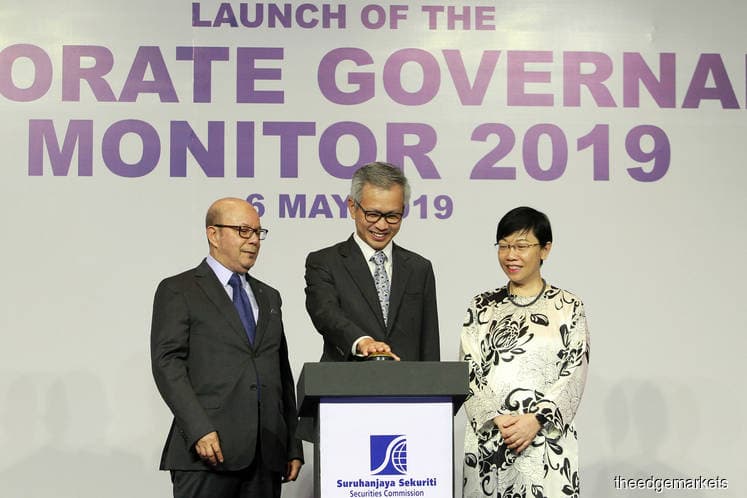
KUALA LUMPUR (May 6): The Securities Commission Malaysia (SC) launched its inaugural Corporate Governance (CG) Monitor today, which showed positive levels of adoption for a majority of the practices recommended in the Malaysian Code on Corporate Governance (MCCG) with improvement opportunities in the quality of disclosures among listed companies.
It said its review in 2018 showed that over 70% of the 841 Main and ACE Market-listed companies adopted the MCCG best practices, with 74% of the companies adopting at least one Step Up practice, and listed companies generally provided disclosures which contained the minimum information required to explain the adoption of departure from the MCCG practices.
The CG monitor presented in detail observations surrounding three thematic reviews on long-serving independent directors, gender diversity on boards and chief executive officer (CEO) remuneration of the top 100 listed companies.
The report observed a reduction in the average tenure of independent directors to five years as at end-2018 from seven years in 2015, which may be attributed to greater scrutiny by shareholders and the need to seek shareholders' annual approval to retain long-serving independent directors beyond nine years.
Progress in terms of gender diversity on boards was also made, as the target set in 2017 to have no all-male boards in the top 100 listed companies by end-2018 was achieved.
It pointed out that there was a seven percentage point increase in board positions held by women for the top 100 listed companies (from 16.6% to 23.68%) and a four percentage point increase (from 12% to 15.69%) for all listed companies.
On CEO remuneration, SC said 81% of the CEOs in the top 100 listed companies by market capitalisation were paid RM10 million or less.
The top three companies with the highest paid CEOs were Genting Bhd, Genting Malaysia Bhd, and Sapura Energy Bhd.
For this year, the SC said it will be reviewing the anti-corruption measures of listed companies as part of its effort to implement the National Anti-Corruption Plan, which identified corporate governance as one of the six priority areas.
For related story, read: Half of top 20 firms on Bursa with highest paid CEOs are family-controlled